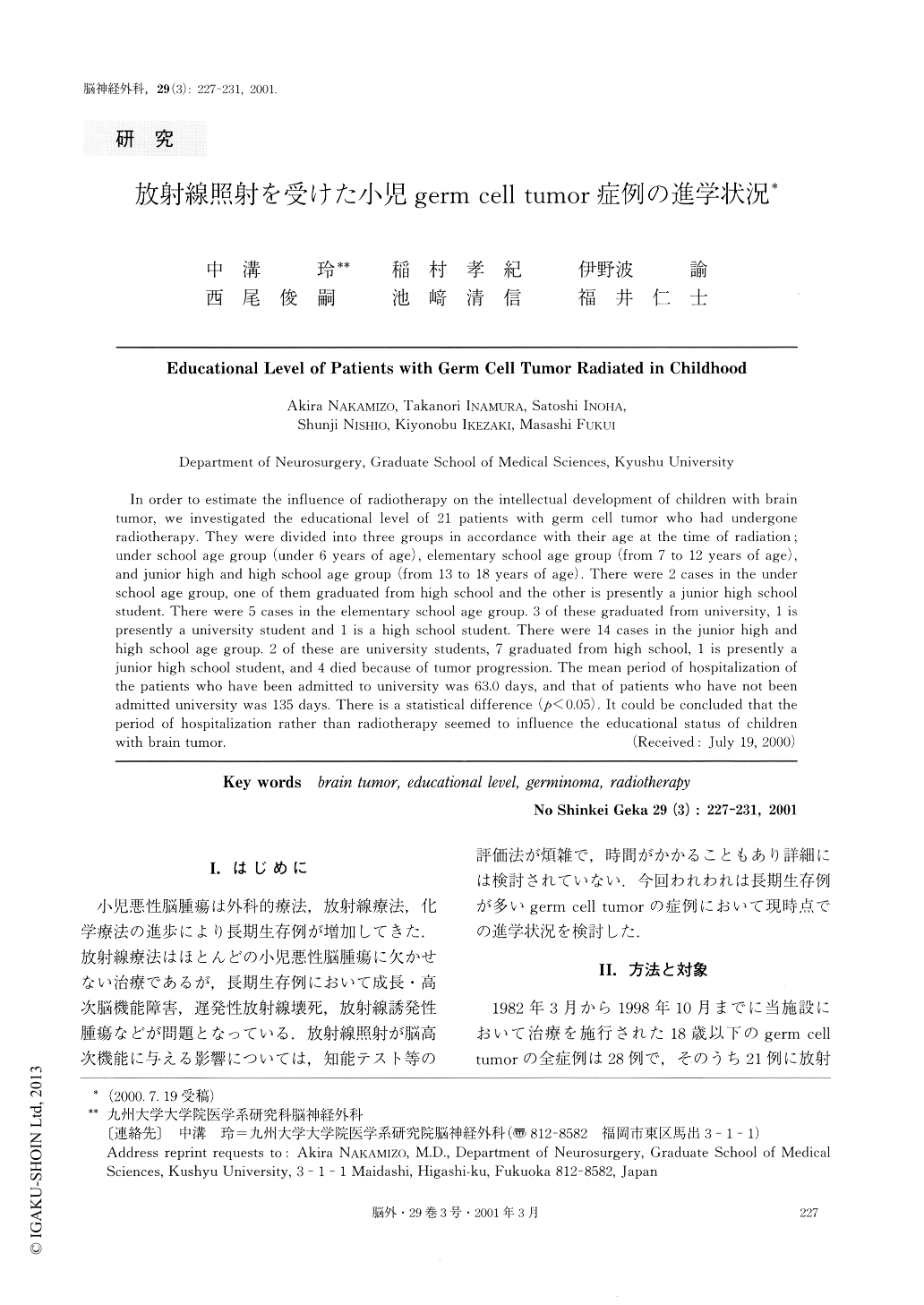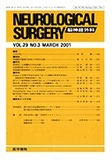Japanese
English
- 有料閲覧
- Abstract 文献概要
- 1ページ目 Look Inside
I.はじめに
小児悪性脳腫瘍は外科的療法,放射線療法,化学療法の進歩により長期生存例が増加してきた.放射線療法はほとんどの小児悪性脳腫瘍に欠かせない治療であるが,長期生存例において成長・高次脳機能障害,遅発性放射線壊死,放射線誘発性腫瘍などが問題となっている.放射線照射が脳高次機能に与える影響については,知能テスト等の評価法が煩雑で,時間がかかることもあり詳細には検討されていない.今回われわれは長期生存例が多いgerm cell tumorの症例において現時点での進学状況を検討した.
In order to estimate the influence of radiotherapy on the intellectual development of children with braintumor, we investigated the educational level of 21 patients with germ cell tumor who had undergoneradiotherapy. They were divided into three groups in accordance with their age at the time of radiation;under school age group (under 6 years of age), elementary school age group (from 7 to 12 years of age),and junior high and high school age group (from 13 to 18 years of age). There were 2 cases in the underschool age group, one of them graduated from high school and the other is presently a junior high schoolstudent. There were 5 cases in the elementary school age group. 3 of these graduated from university, 1 ispresently a university student and 1 is a high school student. There were 14 cases in the junior high and high school age group. 2 of these are university students, 7 graduated from high school, 1 is presently ajunior high school student, and 4 died because of tumor progression. The mean period of hospitalization ofthe patients who have been admitted to university was 63.0 days, and that of patients who have not beenadmitted university was 135 days. There is a statistical difference (p<0.05). It could be concluded that theperiod of hospitalization rather than radiotherapy seemed to influence the educational status of childrenwith brain tumor.

Copyright © 2001, Igaku-Shoin Ltd. All rights reserved.


